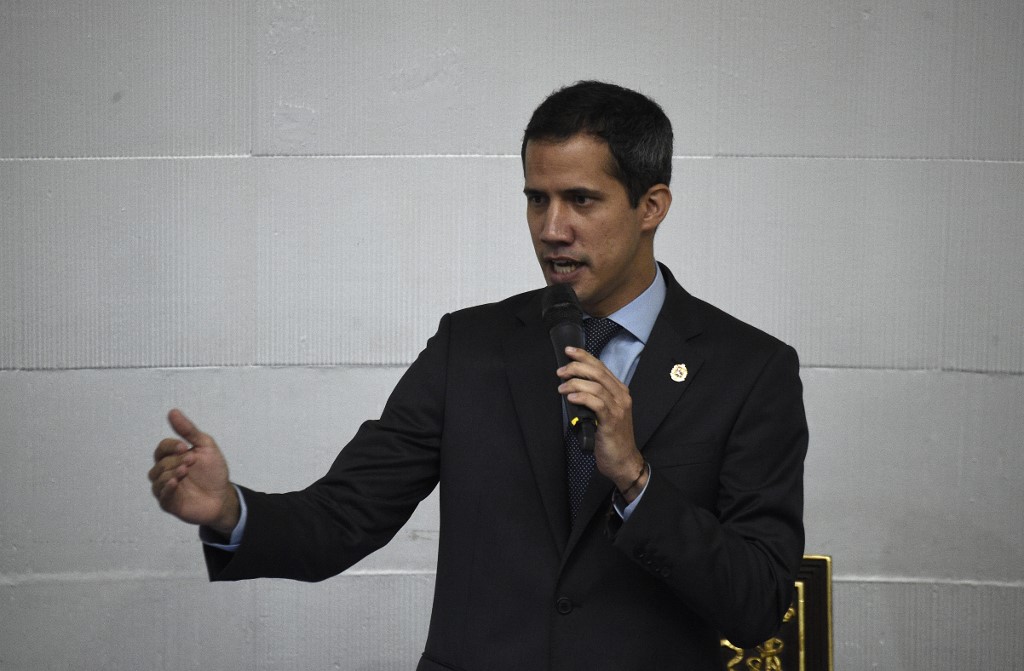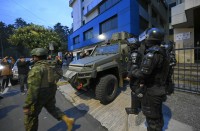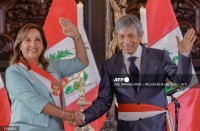
CARACAS, Venezuela (AFP) — Venezuela’s Juan Guaido said Tuesday he feared being abducted by government agents in the coming days after a Supreme Court request to lift his parliamentary immunity heaped pressure on the opposition leader in his power struggle with President Nicolas Maduro.
“They can try to kidnap me,” said Guaido, recognized as the oil-rich country’s interim president by more than 50 countries.
Monday’s decision by the Supreme Court — which is controlled by Maduro loyalists — to call on the ruling Constituent Assembly legislature to strip Guaido of his immunity leaves the opposition leader open to prosecution for breaching a January 29 government ban on leaving the country.
The court had been investigating Guaido for usurping Maduro’s powers by declaring himself interim president on January 23 — a move which rapidly gained international support.
The Constituent Assembly, a legislative body created by Maduro to sideline the opposition-controlled National Assembly, was expected to vote on the Court’s request later Tuesday.
“You know how the regime acts. This is not even persecution — this is inquisition,” said Gauido, who recognizes neither the court nor the Constituent Assembly.
Neither institution “has the quality of being able to lift immunity or invalidate, we have to say things as they are,” he said.
Travel ban
Guaido was speaking to reporters prior to a meeting of his own National Assembly, which sits in the same federal palace building as the rival Constituent Assembly.
Monday’s court ruling cited Guaido’s violation of a ban on his travel outside Venezuela when he visited Argentina, Brazil, Colombia, Ecuador and Paraguay from late February to early March.
The move came after Venezuela’s auditor general’s office announced Thursday that it had stripped Guaido of the right to hold public office for 15 years, a decision he rejected as invalid.
Parallel to the political battle, the country has been hit by a series of devastating blackouts that have left millions without water, prompting the government to replace the country’s energy minister and institute power rationing in a bid to address the outages.
Three major blackouts hit Venezuela in March, worsening already dire living and economic conditions in the country, and prompting authorities to take steps aimed at curbing the outages
Maduro — whose government has blamed “terrorists” for alleged attacks that have damaged the country’s main hydroelectric power plant — announced that he was appointing Igor Gavidia Leon to replace retired general Luis Motta Dominguez as energy minister.
The new minister “is an electrical industry worker with 25 years of experience, an engineer who had many responsibilities,” Maduro said.
On Sunday, Maduro announced 30 days of electricity rationing, after his government said it was shortening the workday and keeping schools closed due to blackouts.
The measures are a stark admission by the government that there is not enough electricity to go around, and that the power crisis is here to stay.
With no electricity, pumping stations can’t work, so water service is limited.
Schools and universities are scheduled to reopen on Wednesday.
© Agence France-Presse







